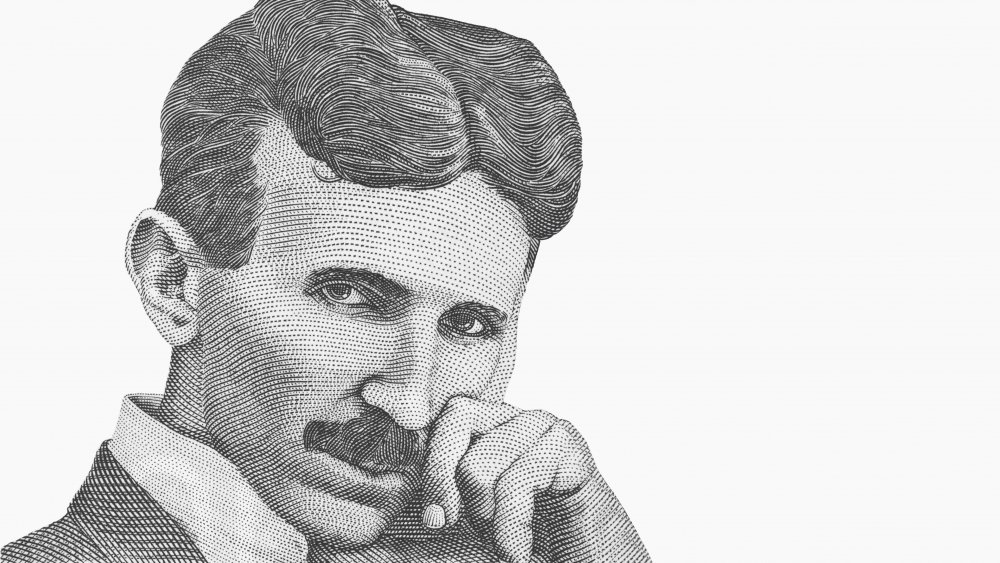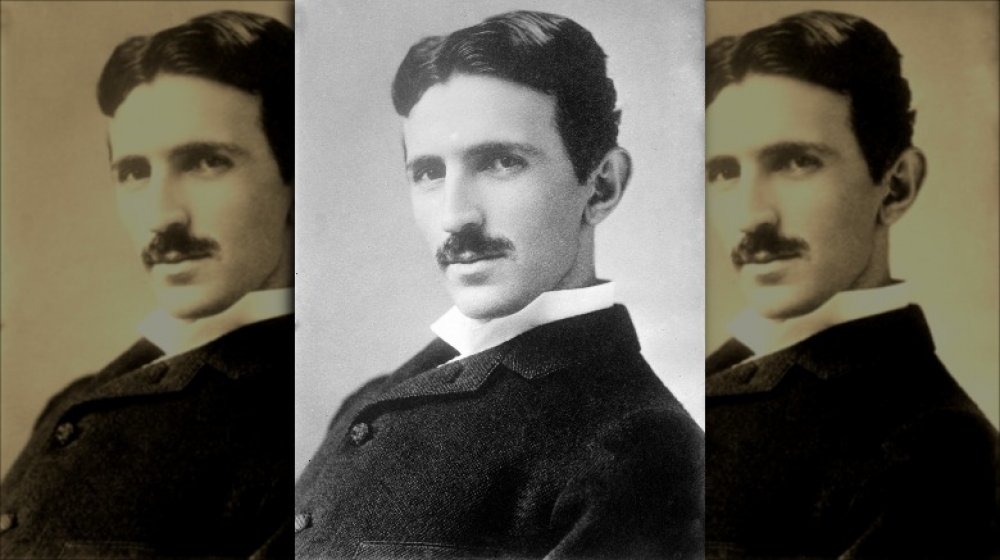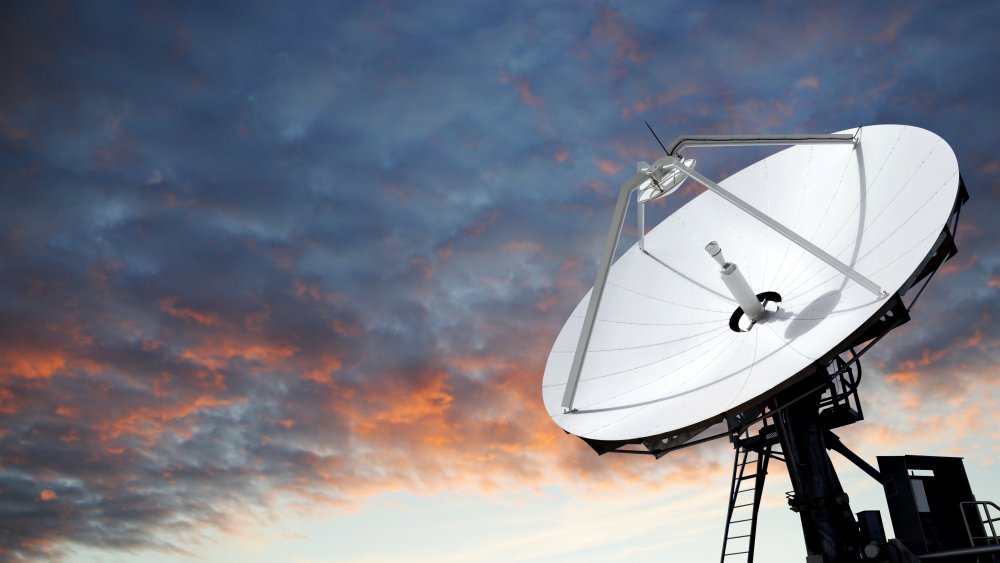The Truth About Nikola Tesla's Connection To The Black Knight Satellite
Nikola Tesla just might hold the number one spot for the worst treatment in scientific history. He was first cheated by none other than Mr. Bright Idea himself, Thomas Edison, who promised Tesla $50,000 to overhaul the electrical generator that he feared would lose out to his competitors if it wasn't improved. According to PBS, after Tesla figured out how to do what Edison couldn't, the American said that the whole payment business was all a joke. Get it? Tesla didn't, either. Edison said that it must have been because Tesla was a foreigner who was didn't understand American humor. "When you become a full-fledged American you will appreciate an American joke," Edison contemptibly said.
Still, Tesla wasn't laughing. And he probably wouldn't be too happy about how Edison's deceit overshadowed Tesla's other phenomenal accomplishments. For example, he would have loved for all of us to be sending free electricity worldwide through the Earth's surface, but according to Steemit, his business partner, J.P. Morgan, realizing there was no money in it for him, backed out of the deal before Tesla could perfect it. And, in what is probably the strangest episode in Tesla's legacy, there's his "discovery" of the Black Knight satellite.
According to Vice, Tesla was listening to the skies at his Colorado Springs laboratory in 1899 when he heard something strange. "I have a deep conviction that highly intelligent beings exist on Mars," he went on to tell a reporter from the Albany Telegram decades later.
Did Nikola Tesla make a connection with the Martians?
Tesla claimed to have received signals that he interpreted as the numeral sequence 1-2-3-4, using a wireless receiver "of extraordinary sensitiveness," and he was convinced that aliens were trying to tell him something: "I believe the Martians used numbers for communication because numbers are universal." As you might guess, Tesla's contemporaries shrugged off the idea, alleging that the guy who gave us the technology to power the planet was merely pulling a publicity stunt.
Tesla was undeterred. In a 1901 article published in Collier's Weekly posted on the Early Radio History website, he admitted that "in this age of reason it is not astonishing to find persons who scoff at the very thought of effecting communication with a planet," but he was certain that he would "soon convert the disbelievers." He said the argument that most other planets were just empty, lifeless wastelands never appealed to him, adding that Mars and Venus were the only two planets in the solar system "capable of sustaining life such as ours: but this does not mean that there might not be on all of them some other forms of life." (Which also explains why he's such a favorite subject for conspiracy theories.)
The scientific community didn't believe that Tesla was talking to aliens, but as the 20th Century progressed, those who desperately want to say he did so came up with an alternate theory for what he heard that night in Colorado.
What is the Black Knight satellite, and what's it got to do with Nikola Tesla?
According to Ancient Code, Tesla is believed by some to have been the first man to receive a signal from what is now known as the Black Knight satellite, an artificial satellite supposedly put into Earth's orbit some 13,000 years ago. But Tesla didn't use the term "Black Knight satellite," nor did he believe he had been contacted by one. He went to his grave thinking it had been the Martians who were talking to him.
What came to be known as the Black Knight is actually an amalgamation of several theories that have been pieced together over the last century. As related by the Armagh Planetarium in Ireland, the 13,000-year-old date of origin was tacked on by theorists. According to them, Scottish ham radio operator and science fiction author Duncan Lunan claimed to have decoded messages from a star system called Epsilon Böotes, but was in fact working with communication coming from the satellite. Lunan disagreed with that hypothesis, and commented on the planetarium's blog post, thanking the astrophysicists for "correcting the Black Knight nonsense." He wanted the world to know that he had nothing to do with the theory. As for what Tesla would think of people connecting him to the Black Knight satellite, we may never know.


